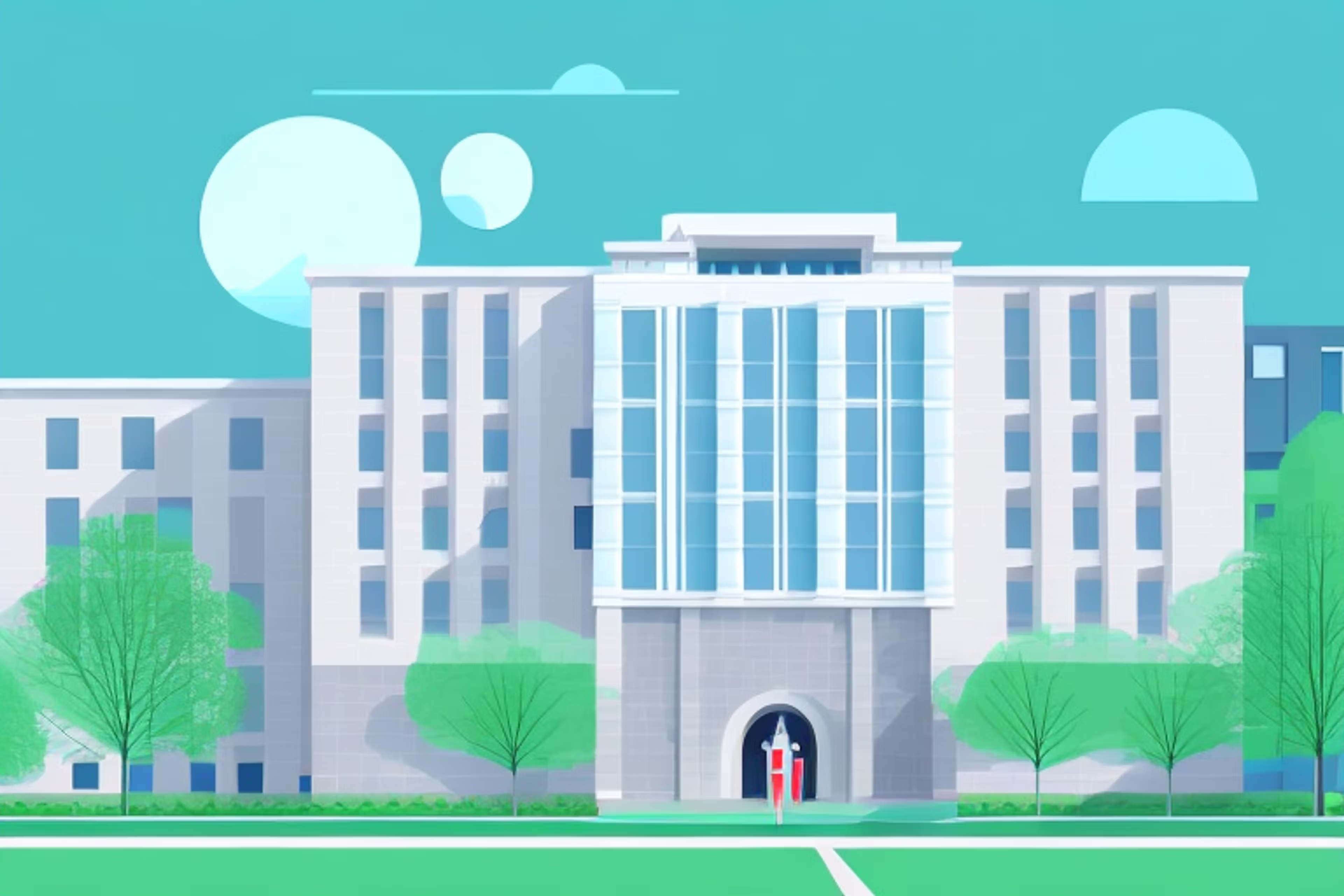Post-Baccalaureate Programs: Everything You Need to Know
Discover everything you need to know about post-baccalaureate programs in this comprehensive guide.
Posted May 19, 2023

Table of Contents
Welcome to our comprehensive guide to post-baccalaureate programs. If you're deciding whether or not to pursue a post-baccalaureate program, or if you're simply curious about what they are, you've come to the right place. In this article, we'll cover everything you need to know about these programs, from what they are and why you should consider one, to the different types available and how to finance them. By the end of this guide, you'll be well-equipped to make an informed decision about pursuing a post-baccalaureate degree.
Why Pursue a Post-Baccalaureate Program
Before we dive into an in-depth discussion of post-baccalaureate programs, let's first take a moment to explore why you may want to pursue one. There are several reasons why you might consider a post-baccalaureate program, including:
- Enhancing Your Education - Whether you're looking to gain a deeper understanding of a subject or to learn a new skill entirely, a post-baccalaureate program can provide you with the education you need to succeed.
- Increasing Your Career Opportunities - Completing a post-baccalaureate program can increase your career prospects by preparing you with the skills necessary to succeed in a particular field.
- Preparing for Graduate School - If you're thinking about graduate school, a post-baccalaureate program can help you prepare by giving you the necessary courses and experience.
Another reason to pursue a post-baccalaureate program is to make a career change. If you're looking to switch careers, a post-baccalaureate program can provide you with the necessary education and training to make a successful transition. Additionally, a post-baccalaureate program can help you build a professional network in your new field, which can be invaluable when it comes to finding job opportunities.
Types of Post-Baccalaureate Programs Available
Now that we've explored why you might want to pursue a post-baccalaureate program, let's take a look at the different types available. Although post-baccalaureate programs can vary greatly depending on the school and the program itself, they generally fall into one of three categories:
- Career-Changer Programs - These programs are designed for students who are looking to make a significant career change and require the education and experience necessary to do so. This type of program often includes internships or practicums to provide hands-on experience in the new field.
- Academic-Enhancement Programs - These programs are designed for students who want to enhance their education or gain specialized knowledge in their field. They often involve taking individual courses or completing a certificate program to gain the necessary skills and knowledge.
- Pre-Professional Programs - These programs are designed for students who are planning on pursuing a professional degree, such as medicine or law. They generally provide the necessary coursework and experience to prepare students for their intended professional program.
Requirements for Admission to Post-Baccalaureate Programs
Admission requirements for post-baccalaureate programs can vary greatly, but they often include a bachelor's degree from an accredited institution, a minimum GPA, and prerequisite courses. Some programs may also require test scores, letters of recommendation, or a personal statement. It's important to check with each individual program to determine their specific requirements.
Choosing the Right Post-Baccalaureate Program for Your Goals
Choosing the right post-baccalaureate program can be a daunting task, but there are a few things you can do to make it easier. First, determine your goals for pursuing the program, whether it's to change careers, gain specialized knowledge, or prepare for graduate school. Then, research programs that align with your goals and consider factors such as location, cost, curriculum, and reputation. Finally, reach out to current students or alumni to gain firsthand knowledge of the program.
Benefits of a Post-Baccalaureate Program for Your Career
A post-baccalaureate program can provide numerous benefits for your career, including:
- Increased Marketability - Completing a specialized post-baccalaureate program can make you more marketable to employers in your field, potentially leading to new or higher-paying job opportunities.
- Networking Opportunities - Post-baccalaureate programs often provide networking opportunities, allowing you to make connections in your field and potentially leading to job offers or mentorship opportunities.
- Specialized Knowledge - A post-baccalaureate program can give you specialized knowledge and skills in your field, making you a more competitive and valuable professional.
Top Universities Offering Post-Baccalaureate Programs
Some of the top universities offering post-baccalaureate programs include:
- Harvard Extension School
- Johns Hopkins University Post-Baccalaureate Premedical Program
- University of California, Los Angeles (UCLA) Extension Post-Baccalaureate Program
- Columbia University Postbaccalaureate Premedical Program
- Georgetown University Post-Baccalaureate Pre-Medical Certificate Program
How to Finance Your Post-Baccalaureate Education
Financing a post-baccalaureate education can be a challenge, but there are several options available. These include:
- Grants and Scholarships - Research various grants and scholarships that may be available for post-baccalaureate programs.
- Loans - Consider taking out a student loan to finance your education. Be sure to research interest rates and repayment options.
- Employee Benefits - Some employers may offer tuition reimbursement or other benefits to assist with educational expenses.
Differences Between a Post-Baccalaureate Program and Graduate School
Although post-baccalaureate programs and graduate school may seem similar, there are important differences to consider. Graduate school generally involves pursuing a master's or doctoral degree in a specific field, while post-baccalaureate programs offer more flexible education and are often used to gain specialized knowledge or prepare for a professional degree program. Additionally, graduate school is typically a multi-year commitment, while post-baccalaureate programs can range from a few months to a few years depending on the program.
Common Misconceptions About Post-Baccalaureate Programs
There are several misconceptions about post-baccalaureate programs that should be addressed. Some of the most common include:
- Post-Baccalaureate Programs Are Only for Students Who Want to Pursue a Professional Degree - As we discussed earlier, post-baccalaureate programs can be used to gain specialized knowledge or enhance your career prospects, even if you aren't planning on pursuing a professional degree.
- Post-Baccalaureate Programs Are Only Available in a Few Fields - While some programs are specialized to certain fields, there are many post-baccalaureate programs available in various areas of study.
- Post-Baccalaureate Programs Are Only for Recent Graduates - Post-baccalaureate programs can be useful for students at any stage in their career.
Career Paths After Completing a Post-Baccalaureate Program
The career paths available after completing a post-baccalaureate program are numerous and varied. Some examples include:
- Transitioning to a New Career - If you completed a career-changer program, you may be well-prepared to transition to a new career in your desired field.
- Advancing in Your Current Career - If you completed a program to gain specialized knowledge, you may be able to advance in your current career by applying your new skills and knowledge.
- Pursuing Graduate School - If you completed a pre-professional program, you may be well-prepared to apply for the graduate program of your choice.
Alumni Success Stories: Real World Examples of the Benefits of a Post-Baccalaureate Education
Real-world examples can be a great way to understand the benefits of a post-baccalaureate education. Some examples of post-baccalaureate alumni success stories include:
- A former finance professional who completed a post-baccalaureate program in computer science and transitioned to a career in software development.
- A former social worker who completed a pre-medical program and went on to attend medical school.
- A former history major who completed a certificate program in business and advanced to a management position in their company.
The Future of Post-Baccalaureate Education: Trends and Innovations
The future of post-baccalaureate education is constantly evolving, with new trends and innovations emerging every year. Some of the current trends in post-baccalaureate education include increased emphasis on online programs and flexible scheduling, as well as more specialized programs designed to meet the needs of specific industries.
How to Make the Most of Your Time in a Post-Baccalaureate Program
If you've decided to pursue a post-baccalaureate program, it's important to make the most of your time in the program. Some tips for doing so include:
- Setting Goals - Determine what you want to accomplish in the program and set specific, achievable goals to help you reach those outcomes.
- Staying Engaged - Take advantage of networking opportunities and engage with professors and fellow students to get the most out of your education.
- Being Open to New Experiences - Be open to new experiences and take advantage of internships, practicums, and other hands-on opportunities to gain real-world experience in your field.
Conclusion
In conclusion, post-baccalaureate programs offer a wide range of benefits for students looking to enhance their education, advance their careers, or prepare for graduate school. By understanding the different types of programs available, admission requirements, and financing options, you can make an informed decision about pursuing a post-baccalaureate degree. Remember to stay engaged in your education and take advantage of opportunities to gain real-world experience in your field. With the right mindset and approach, a post-baccalaureate program can be your gateway to success.











